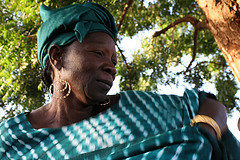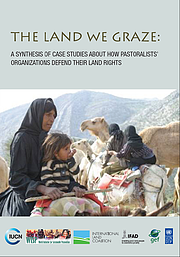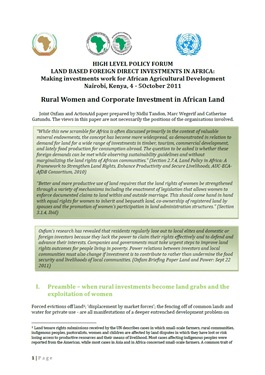land rights
AGROVOC URI: http://aims.fao.org/aos/agrovoc/c_37898
Le droit à la terre et les paysans pauvres au Sénégal
Le Sénégal pays agricole essentiellement composé d’agriculteurs, de paysans est situé à l’extrême Ouest du continent africain avec une superficie totale de 196 720 km 2. La superficie totale cultivable est estimée à 3,8 millions d’ha soit 19 pour cent de la superficie totale.
Migrant land rights reception and 'clearing to claim' in Sub-Saharan Africa: A deforestation example from southern Zambia
The relationship between migration and deforestation in the developing world continues to receive significant attention. However beyond direct population increase, the precise mechanisms that operate within the intersection of migrant - host land rights remain largely unexamined. Where migrants are provided with land and rights by the state and/or local communities, how such rights are perceived by the migrants is of primary importance in their interaction with land resources, and in aggregate it impacts the development opportunities and environmental repercussions of migration.
Impact of the Land Reform on the Land Rights and Economic Poverty Reduction of the Majority Rural Women Who Depend on Land for their Livelihood
This study was conducted by Rwanda Initiative for Sustainable Development (RISD) under the funding of the IS-academy in partnership with the Netherlands Government, as part of their research program on “Land Governance for Equitable and Sustainable Development” of which the guiding question is “the link between land governance, sustainable development and poverty alleviation”.
New COHRE Report - Living under threat but with nowhere to go
You can find below, attached, a new report from the Centre On Housing Rights & Evictions (COHRE) - Asia on women's land and housing rights in Phnom Penh. Authors identify 11 recommendations for the Royal Government of Cambodia and 7 for NGOs. The report is based on a survey of 742 women interviewed, representing approxitemely 10 percent of the affected families in 74 communities threatened with forced evictions in Phnom Penh.
The relationship between indigenous pastoralist resource tenure and state tenure in Somalia
Indigenous resource tenure systems in Africa have evolved to meet the constraints and opportunities of often difficult biophysical environments, while facilitating the operation of complex spatial and temporal land use patterns. Traditional systems provide security of tenure in culturally relevant ways that permit adaptation to new circumstances. On the other hand imposed tenure structures in Africa have often not strengthened individual rights and have often blocked indigenous tenure development and adaptation in response to new situations.
The Land We Graze
This report is the result of the co-operation of seventeen partners from four continents—all of them engaged in activities to improve the livelihoods of mobile livestock keepers. The organizing question of this collaboration was, how do mobile livestock keepers—i.e. pastoralists—succeed to organize themselves and to defend and secure their land rights.
Toward Communal Land Titles in Sangthong District
According to the Prime Minister’s Decree on Land Titling, No. 88 from 03/06/2006, Communal Land Titles can be issued for all types of land that occur in the Lao PDR which are allocated by the Government to village communities. The development of community land titles is also part of objectives of the 5-year National Socio-Economic Development Plan, which aims to issue 1.5 million title deeds over the period 2011-2015. Up to now, communal land titles have not been issued in Lao PDR, mainly because the format and detailed technical concept were not yet developed.
Refugee Resettlement on the Horn of Africa:
The enormity of the African refugee problem underscores the importance of resettlement issues in land use planning. Efforts to resettle subsistence-oriented agricultural populations have often come into conflict with host, or in-place land uses as competition for scarce resources lead to land degradation, violence, and the failure of resettlement schemes. The success of refugee resettlement will depend to a large extent on the degree to which host and refugee land-use patterns can become integrated or reconciled.









